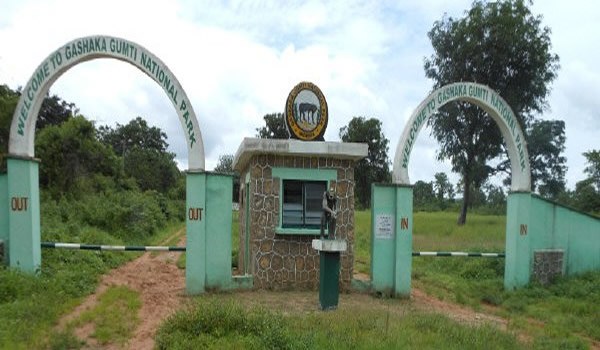The plan to annually celebrate the World Wildlife Day was conceived during the 68th session of the United Nations General Assembly in December, 1983 as a means to raise awareness of the world’s wild fauna and flora as well as to recognise the importance of the Convention on International Trade in Endangered Species (CITES) in ensuring that international trade of Wild Flora and Fauna does not threaten the survival of species.

The theme of World Wildlife Day 2018 “Big cats – predators under threat” is a step further from last year’s theme ‘‘Listen to the Young Voices’ as a way to ensure the realisation of CITES objective in the 182 member states of the United Nations, on the need to urgently rise to the demands of conserving all form of wildlife especially the big predators – who are now globally threatened – with their condition in Nigeria even more dire!
With reference to the 2016’s World Environment Day, Amina Mohammed, who until her recent UN’s appointment was the Minister of Environment said, “The status of wildlife in the country leaves much to be desired, as the rate of depletion of the population of animals like the elephants, leopards, giraffes and crocodiles amongst others is frightening. Today I know that if somebody says, what is really the status, or figures for wildlife in Nigeria? I am not sure I can tell you as the Minister of Environment. And if I am going to say something, it is probably 10 years old in terms of its information and data.”
It almost two years since Amina Mohammed promised that the government would develop the capacity to know what the baseline was, what animal was where, which was endangered, what needed to be done to protect those animals and to increase their population in Nigeria.
For long, Nigeria has rested on an erroneous notion that our wild animals were plentiful and not under any threat of extinction, however, following the recent publication of the International Union for the Conservation of Nature (IUCN) Red List of globally threatened species which revealed that 148 animals and 146 plant species found in Nigeria were threatened at various degrees including some species near extinction, we hope it is not too late to right the wrongs. Out of the very large landmass that Nigeria boasts of, we have only seven National Parks. There is the need to invest in our National Parks to see clear prioritisation of our biodiversity and wildlife heritage by the governments at all level in Nigeria.
Human activities like hunting, grazing, land deforestation, mining, infrastructural construction, aerodromes, power lines, and related activities have destroyed our wildlife flora and fauna than natural factors like climate change and fire occurrences by over 40% in the last 25 years. Another adjoining factor is that occupants of host communities earmarked as protected areas see their surrounding areas as traditional hunting grounds.
We must take a cue from smaller countries like Gabon with 13 well-managed national parks, Egypt with 25 national parks and Kenya with 23 national parks only aside game reserves, wildlife sanctuary and other forms of protected areas in countries like Botswana, South Africa, Tanzania and Madagascar.
Sadly, fewer than 50 lions remain in Nigeria while the global value of illegal wildlife trade is soaring beyond $50 – 150 billion per year, conversely, less than 7,100 cheetahs remain in the wild, globally. These and many more statistics of the state of wildlife suggest that the time for urgent action is now!
The Federal Ministry of Environment and the Federal Ministry of Agriculture and Rural Development, must create an operational synergy between associated government and non-government stakeholders. On the other hand, the government must undertake the following:
- Strengthen the National Park Service to enhance their capacity for wildlife conservation and protection.
- Increase awareness and education on the intrinsic value of wildlife to the society.
- Swift and clear penalties to illegal poachers and hunters to mitigate further illegal harvesting of wildlife.
- Infrastructural development plans to incorporate the wildlife protection/survival programme through effective Environmental & Social Impact Assessment.
Finally, monitoring and data compilation must complement environmental education and awareness; the fiercest of wild animals cannot protect themselves from those out to poach or illegally traffic them, it’s up to you and me, together we can restore Nigeria’s wildlife heritage and give a voice to the younger ones!
By Dr. Joseph Onoja (Ag. Director General, Nigerian Conservation Foundation)
